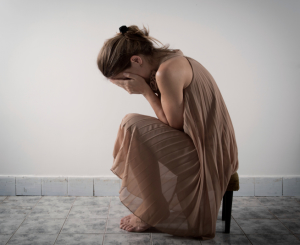 Guilt is a powerful emotion that tends to elicit feelings of shame, panic, and loss of self-esteem, no matter your age. It is often introduced during childhood as parents’ way of controlling a child’s behavior. However, using this tactic can cause anxious thinking and may lead to bouts of depression as an adult.
Guilt is a powerful emotion that tends to elicit feelings of shame, panic, and loss of self-esteem, no matter your age. It is often introduced during childhood as parents’ way of controlling a child’s behavior. However, using this tactic can cause anxious thinking and may lead to bouts of depression as an adult.
If you’ve ever felt guilty about anything, you know it’s not a good feeling. Some people have the ability to cope with those feelings and move on where others do not. Oftentimes, people will replay those instances in which they felt guilty over and over in their minds, which may cause them to believe that they are a bad person. This may eventually lead to depression.
Research has shown that children who experienced high levels of guilt had smaller anterior insula volume, which is predictive of depression later in life. Using guilt as a parenting tactic may cause the child to become angry and internalize their problems. This has the potential to lead to a variety of issues later in life, including depression and anxiety.
A large part of therapy is spent modifying past behaviors to ensure that the patient can function more positively in life. In my experience, many of these past behaviors are a manifestation of guilt experienced during childhood. If you’re a parent, it’s imperative that you not use guilt as a way to modify your child’s behavior.
Guilt is so powerful that it can transcend time and stay with you, making you feel like you’re not good enough. It’s important to always remember that you are good enough!
Dr. Amanda Itzkoff is trained in Psychotherapy and Psychopharmacology in New York, and can help you move beyond the frequent frustrations or limitations that may be caused by depression. If you are looking for more information on depression, please feel free to contact us via email. To schedule a consultation, please contact our office at 917-609-4990..

